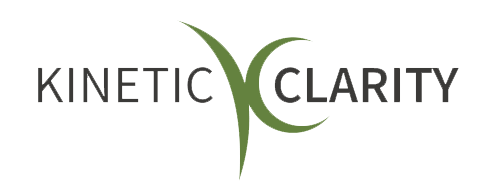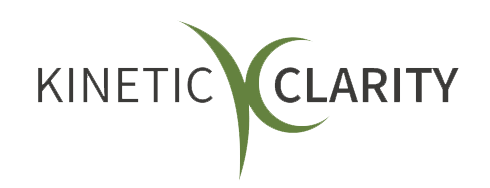The Quiet Courage of Letting Go: Coaching Through Loss and Change
Freedom is waiting for you

Imagine you're holding onto a rope, tightly. Your knuckles are white, your grip is firm. The rope represents life and our very human desire to control our journey. It’s almost like we are playing tug-o-war with life. When we experience loss or change or the overarching acceleration of life, we want to believe that the tighter we grip, the more likely we are to win, and the easier it will be to navigate life. But sometimes, the bravest thing to do is to let go... relinquish control, surrender to life, and begin again playing a different game.
The reality is we can’t control everything. Playing tug-o-war with life is a game none of us will win. There are always circumstances, changes, and losses we can’t avoid. Today we are exploring the quiet courage of letting go and how coaching and cultivating self-awareness can guide us through the tumultuous seas of loss and change. Whether it's the loss of a job, a relationship, or a deeply rooted belief, letting go requires courage. But why is it so vital, and how can we navigate this challenging journey?
Understanding Loss and Change
Loss and change are inevitable parts of life. They can be as monumental as losing a loved one or as subtle as changing job roles. Each type of loss initiates a transition, a period of adjustment where the old gives way to the new. This period can be fraught with a range of emotions – from denial and anger to eventual acceptance. Today, let’s look at the types of loss and change that can sneak up on us at work.
In the corporate world, change is often rapid and relentless. Mergers, restructuring, or shifts in company culture can feel like the ground is shifting beneath our feet. There are also micro changes that occur regularly like team decisions, new processes, changing team members, and more. How we respond to these changes can define our path forward, both professionally and personally.
Developing self-awareness and being intentional as we navigate the circumstances in our lives is key. Working with a coach or asking your boss and peers to bring a coach approach to your conversations can help you see blind spots and areas where you are gripping too tightly.
Let’s take a look at three not so obvious places we can let go…
- Letting go of the need to be right.
- Moving beyond competition.
- Releasing old stories and patterns.
Letting Go of the Need to Be Right
One of the more challenging aspects of navigating change involves dealing with conflicts that arise from differing perspectives. In such situations, the instinct may be to fight to prove your point or to assert that you’re right.
But here’s the newsflash… you may be right, but that’s not enough. What, you ask, is more important than being right? Just like tug of war, if you hang on too long and pull the rest of your team into the mud, will that get you to the outcome you desire? What is more important than being right? Being in relationship.
The process of letting go often requires stepping back from the need to win an argument. Instead, focusing on listening, empathy, and collaboration can lead to more meaningful and sustainable outcomes. Letting go of being right doesn’t mean compromising your values, but rather embracing a mindset open to growth and new possibilities. Cultivating awareness with a coach around our values and mindset can support choosing what’s more important than being right.
Moving Beyond Competition
Another dimension of navigating change is the natural tendency we have to succeed that can sometimes tip into unhealthy competition. When circumstances are challenging and change is coming fast, we can slip into gripping too tightly to winning or losing without even realizing our elbows are out. We can unknowingly tip into the unhealthy realm of competition where we hoard resources, narrow our focus, and enter a zero-sum game.
Letting go of competition, especially in a corporate environment, can pave the way for a more cooperative and team-oriented culture. The competitive drive can sometimes isolate us and create barriers to communication and understanding. Recognizing that success can be shared and that collective achievements contribute to individual growth helps in creating a more supportive work atmosphere.
Releasing Old Stories and Patterns
Much of our reaction to loss and change is influenced by our past experiences and the stories we tell ourselves about these experiences. These narratives can keep us trapped in old patterns of behavior that may no longer serve us well in new circumstances.
Consciously identifying and letting go of these stories allows us to respond to change with a fresh perspective and reduces our emotional burden. We rewrite our internal scripts to be more adaptive and resilient in the face of new challenges.
As we navigate through the stages of letting go, we make room for new stories and opportunities. This shift can revitalize our approach to work and personal relationships, offering a renewed sense of purpose and direction. In this way, we learn how to cope with loss and thrive in a constantly changing environment.
The Role of Coaching in Navigating Loss and Change
In the midst of transformation, whether personal or professional, the guidance of a coach can be invaluable in helping us understand and manage our emotions, shift perspectives, and build resilience during times of change. Coaching provides a partnership that supports your journey of change, offering a safe space where you can explore emotions, challenge limiting beliefs, and achieve clarity.
Coaches play a crucial role not only for project sponsors and organization leaders but for every individual involved, from the bottom up to the top down. This supportive guidance helps maintain crucial boundaries and a sense of self and purpose.
At the same time, you learn how to lean into curiosity and explore new possibilities. You gain the courage to feel all the feels and fill any voids created by change. In navigating these complex waters, coaching can be the compass that guides you towards your true north in times of uncertainty.
Strategies for Letting Go
Letting go isn't forgetting or dismissing our experiences. Instead, we move forward with them in a way that's healthy and productive. Here are three strategies we can use:
Feel It To Heal It
Loss and change is an emotional journey. Improving our emotional vocabulary and emotional intelligence can help us navigate change. Being aware of our emotions helps us stay grounded in the present moment. It's about accepting our current reality, not as we wish it to be but as it is.
Building emotional intelligence takes practice and intention. It involves becoming more attuned to our thoughts, feelings, and behaviors, and observing them without judgment. This heightened sense of awareness allows us to embrace our emotional journey and provides the clarity needed to move through emotions rather than suppress, avoid, or get stuck in our emotions.
Here are points on how to build emotional intelligence:
- Build Your Emotional Vocabulary: Find an emotion chart (like this one)and expand your emotional awareness beyond the primary three… mad, sad, glad. We are complex, original, feeling beings. We need the vocabulary and the ability to name what we are feeling and share it with others.
- Observe Without Judgment: Learn to observe your thoughts and emotions as they arise without attaching judgments or labels to them. This helps in understanding your internal landscape without influencing it with preconceived notions.
- Set Daily Check-ins: Schedule regular check-ins with yourself throughout the day to reflect on your feelings, thoughts, and behaviors. This can be as simple as a few minutes of quiet reflection to assess and realign your mental state.
Reframing Perspectives
Give yourself options and the freedom to choose. We can’t control the circumstances of our lives, but we can control how we respond to those circumstances with how we think, what we do, and how we feel (thoughts, feelings, behaviors). Often a coach can help reveal our blind spots and bring more choice and intention to navigating change.
Sometimes, letting go requires a shift in perspective. We need to rewrite the stories we tell ourselves. For example, what if a job loss is viewed not as a setback but as an opportunity for growth?
Reframe your perspectives by:
- Identify Existing Beliefs: Actively identify and challenge your existing viewpoints about a situation or topic. Allow yourself to honor these beliefs as real and true for you. Sometimes just bringing some awareness, compassion, and acceptance to our initial reactions and beliefs is enough to liberate them.
- Seek Alternative Viewpoints: Expose yourself to different perspectives by engaging with diverse groups, reading broadly, or discussing issues with others who have different experiences and opinions. You can also bring more creativity, play and divergent thinking to activate new neural pathways. This can broaden your choices and bring intention to how you engage in the circumstances of your life.
- Brainstorm Ways to Lock In New Perspectives: Embrace new ways of being and new behaviors and actions to support fresh perspectives.
Building Resilience
Resilience is perseverance after a setback. It’s like a muscle; it strengthens with practice. Coaches help develop this resilience by encouraging small steps out of the comfort zone.
- Develop a Strong Support Network: Cultivate relationships with family, friends, and colleagues who can offer emotional support and practical help during tough times.
- Practice Self-Care: Prioritize activities that nurture your body, mind, and soul, such as exercise, adequate sleep, healthy eating, and hobbies that you enjoy. Regular self-care enhances your ability to cope with stress.
- Practice Mindfulness: Engage in regular mindfulness exercises like meditation, deep breathing, or mindful walking to enhance your ability to stay present and attentive to your thoughts and feelings.
- Adopt a Growth Mindset: Embrace challenges and setbacks as opportunities for growth. Recognize that abilities and understanding can develop through effort and perseverance, leading to a more adaptable and optimistic outlook.
Conclusion
Letting go requires quiet courage – the courage to face the unknown, to step into a new version of ourselves, and to trust in the process of change. It's not an easy journey, but it's a rewarding one. Embrace change as a part of life. Accept that change is inevitable and adapt to it by being flexible. Viewing challenges as opportunities to learn and grow can transform how you respond to stress.
As we conclude, I invite you to reflect on the areas of your life where you might need to let go. Remember, in the art of letting go, there is freedom, growth, and the potential for new beginnings. With the right support and a willingness to embrace change, we can all find the courage to stop the tug of war, let go, and move forward.
Armed with awareness, a new perspective, and resilience, write a brave new ending for yourself.
Quote by Erin Hanson: “There is freedom waiting for you, On the breezes of the sky, And you ask "What if I fall?" Oh but my darling, What if you fly?












